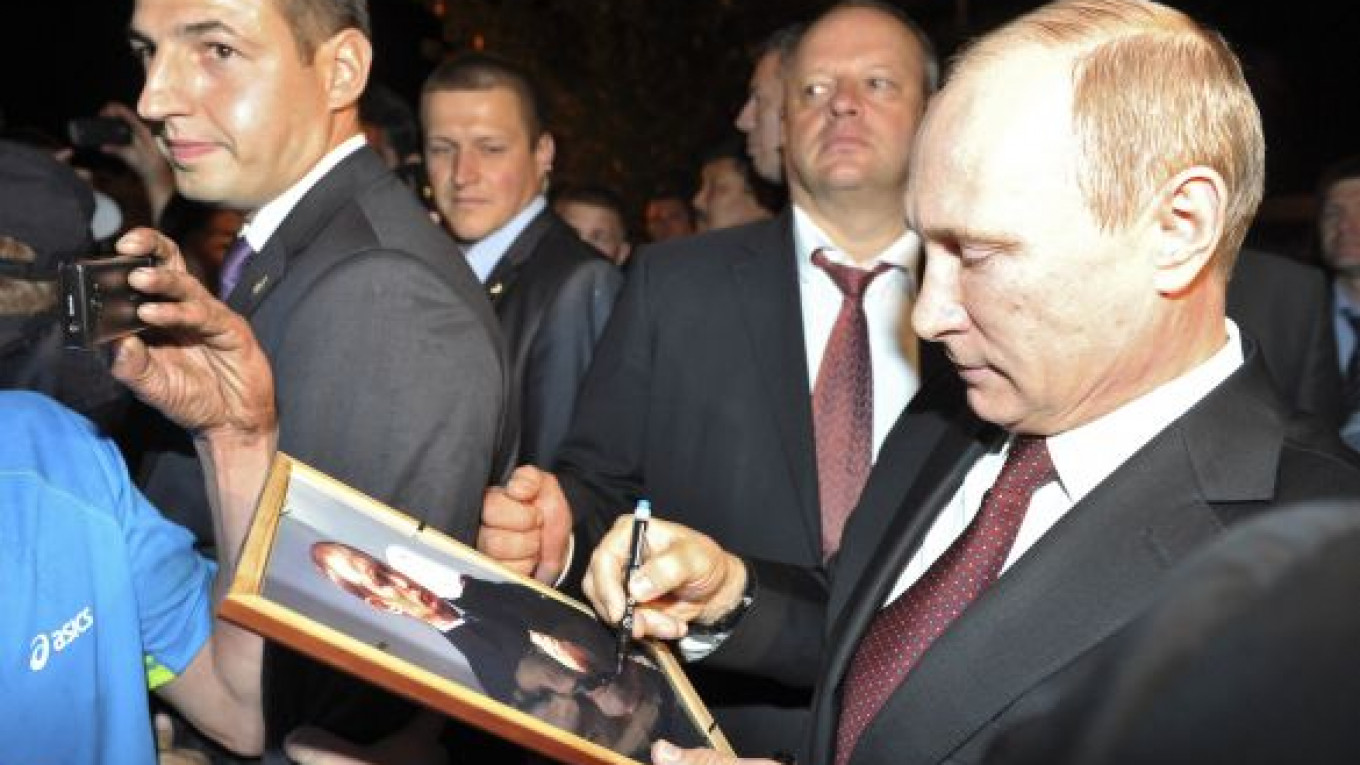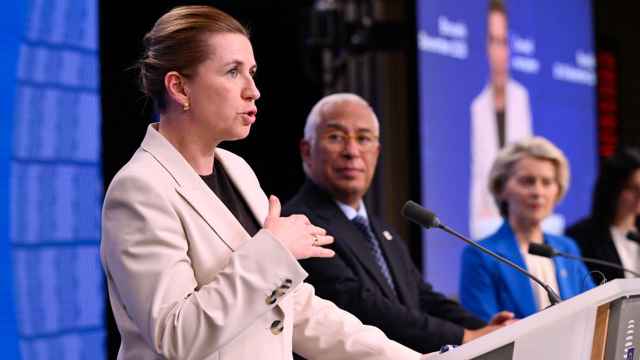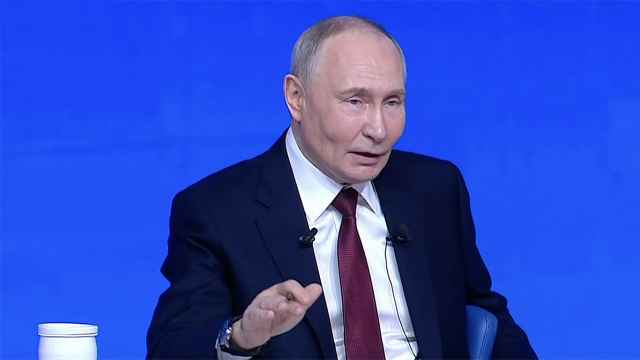CHITA — President Vladimir Putin on Wednesday gave his clearest signal yet that he would not let a dispute over the fate of former U.S. spy contractor Edward Snowden derail relations with the United States.
Snowden, who is wanted by Washington for leaking details of U.S. intelligence programs, is seeking temporary asylum in Russia after spending more than three weeks at a Moscow airport trying to fly to a country that will shelter him.
Allowing the American to stay in Russia even temporarily would upset Washington. But a refusal would open Putin to criticism at home that he has not stood up to Moscow's former Cold War enemy, even though he has refused to extradite Snowden.
Asked during a visit to the Eastern Siberian town of Chita whether the affair would cast a shadow over a U.S.-Russia summit due in September in Moscow, Putin told reporters Wednesday: "Bilateral relations, in my opinion, are far more important than squabbles about the activities of the secret services."
Putin did not say whether Russia would grant Snowden's temporary asylum request, but made clear that he was still insisting the American must agree to do nothing to harm the United States.
"We warned Mr. Snowden that any action by him that could cause damage to Russian-American relations is unacceptable for us," Putin said.
Russia will make an independent decision when deciding on Snowden's fate, but maintaining relations with Washington is also a "national objective", the president added.
Snowden is useful as a propaganda tool for Putin, who accuses the U.S. government of preaching to the world about rights and freedoms it does not uphold at home.
But Putin wants the summit with Obama to go ahead, and both countries have signaled they want better relations, strained by issues ranging from the Syrian conflict to Putin's treatment of opponents since he started a six-year third term last year.
A Russian lawyer helping Snowden with his request for temporary asylum said Wednesday that he expected Snowden would soon be able to leave Sheremetyevo airport, where he has remained in the transit zone since his arrival from Hong Kong on June 23.
Anatoly Kucherena said he believed the American would be able to leave the transit zone, which Moscow considers neutral territory, within a week, and indicated that he expected him to stay in Russia for the time being.
Asked whether Snowden might apply for Russian citizenship, Kucherena said: "He does not rule it out." He said he had given Snowden a children's Russian ABC book to get him started learning the language.
Kucherena quoted Snowden as saying he had expected to be persecuted but had been surprised by the "excessive, disproportionate" response.
Kucherena said Tuesday that Snowden had given him a verbal promise that he would stop anti-U.S. activities.
But a human rights activist who attended a meeting with Snowden at Sheremetyevo on Friday said the American did not regard his leaks as harmful to his home country.
Snowden, 30, says the United States has prevented him from flying to Latin America — where Nicaragua, Bolivia and Venezuela have offered to give him refuge — by putting pressure on other countries not to help him escape U.S. justice.
Putin has also accused the United States of trapping Snowden, but Russia has kept the former contractor at arm's length by saying it regards the transit area between the runway and passport control as neutral territory.
"Mr. Snowden, as I understand it, never intended to stay here, in Russia, forever. He has even said so himself," Putin said. He added that he did not know what Snowden's long-term plans were and said: "It is his fate and his choice."
Putin said rights advocates knew they could face certain costs when they got involved in their activities, and it often became particularly "complicated" if they criticized the United States.
"The example with the Bolivian president's plane showed this," he said, referring to a decision by four U.S. allies in Europe to prevent Evo Morales' plane from entering their airspace this month because they thought Snowden was on board.
The Obama administration on Tuesday repeated its call for Russia to send Snowden back to the United States.
"He is not a human rights activist, he is not a dissident. He is accused of leaking classified information," White House spokesman Jay Carney said.
Asked about Obama's travel plans to Russia this fall amid the dispute over Snowden, Carney played coy. Obama is scheduled to visit St. Petersburg in September for the Group of 20 economic summit and also stop in Moscow for one-on-one talks with Putin.
"The president intends to travel to Russia in September for the G20 Summit, and I don't have any further announcements with regard to that travel," Carney said.
Asked whether that meant Obama was skipping Moscow, Carney would only say that he didn't have anything to add to "previous announcements on presidential travel."
Pressed on whether he was being intentionally vague, the White House spokesman said, "I don't have anything to add."
A Message from The Moscow Times:
Dear readers,
We are facing unprecedented challenges. Russia's Prosecutor General's Office has designated The Moscow Times as an "undesirable" organization, criminalizing our work and putting our staff at risk of prosecution. This follows our earlier unjust labeling as a "foreign agent."
These actions are direct attempts to silence independent journalism in Russia. The authorities claim our work "discredits the decisions of the Russian leadership." We see things differently: we strive to provide accurate, unbiased reporting on Russia.
We, the journalists of The Moscow Times, refuse to be silenced. But to continue our work, we need your help.
Your support, no matter how small, makes a world of difference. If you can, please support us monthly starting from just $2. It's quick to set up, and every contribution makes a significant impact.
By supporting The Moscow Times, you're defending open, independent journalism in the face of repression. Thank you for standing with us.
Remind me later.






